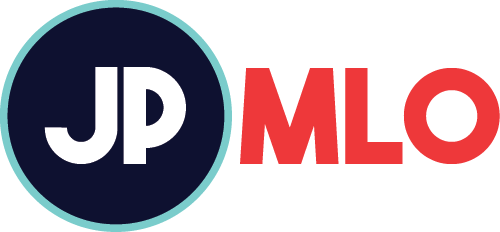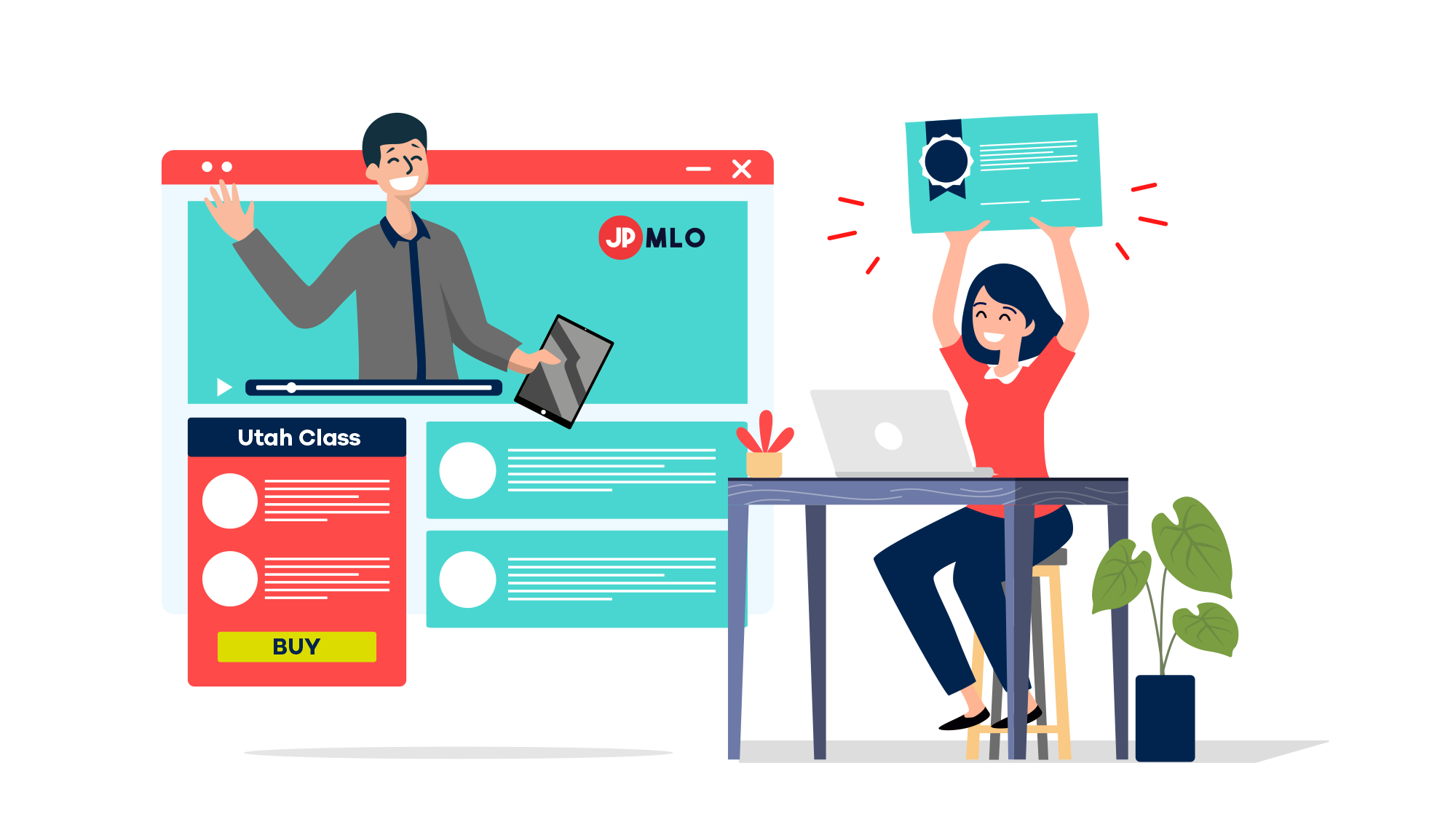To stay ahead of the competition and become a top-producing mortgage loan originator, you may want to offer your MLO services in multiple states. Taking this strategic approach allows you to originate more loans without limiting yourself to a footprint in one given state.
But in order to legally offer MLO services across state lines, you will need to make sure you are licensed in those states you want to do business.
Getting your MLO license in multiple states isn’t that difficult, however, there are a few steps you will need to complete to make sure you are in compliance with each state’s regulating agency.
The Nationwide Mortgage Licensing System (NMLS) provides a comprehensive list of state-specific requirements along with resources to help both new and seasoned mortgage loan originators get their MLO license in multiple states.
How to Get Your MLO License in Multiple States
If you are interested in getting your MLO license in multiple states, the first thing you should do is make sure your NMLS account is updated to reflect your most current information. This will ensure that any steps you complete to obtain your MLO license in other states will report correctly to your NMLS account.
The next step is to identify which states you are interested in becoming licensed in. Technically, you can hold an MLO license in all 50 states, as well as U.S. territories including Puerto Rico, Guam, and the Virgin Islands.
Knowing which specific state you want to be an MLO in is important because each state has its own unique education requirements for MLO licensees. Similarly, if you are working for a mortgage employer, normally that company must also be authorized to do business in those states.
In general, most state guidelines align with the federal MLO license requirements. This means you will need to successfully pass your NMLS exam and complete 20 hours of MLO pre-license education training†.
Additionally, you will need to pay any associated licensing fees, submit your fingerprints for processing, and pass both a criminal background and credit check. You will also need to be sponsored by a mortgage employer.
Advantages of Having Multiple MLO Licenses
Holding multiple NMLS MLO state licenses can be extremely advantageous. Not only can it help you become a more knowledgeable mortgage loan originator, but it can also help increase your earnings potential. Other advantages to maintaining an MLO license in multiple states include:
- Larger footprint resulting in more origination opportunities
- Diversification should local market develop unfavorable conditions
- Increases your professional credibility as an MLO across the industry
- Simplifies relocation or moving if you move to a state where you are already licensed
The biggest reason many mortgage loan originators seek to obtain licenses in multiple states is to broaden their pool of prospective clients. Having more people to originate loans for helps make it easier to grow your book of business.
Similarly, newer developments over the last few years have allowed mortgage loan originators to work from home or at a remote location. Having the option to work remotely can help foster a better work-life balance, decrease stress, and increase efficiency while you are on the clock.
Challenges to Getting Multiple MLO Licenses
Despite the benefits of getting your MLO license in multiple states, there are a number of headwinds you might face if you choose to expand your footprint across state lines. A few potential challenges to getting multiple state MLO licenses include:
- Additional application and processing fees
- Staying in compliance will all state-specific continuing education requirements
- Maintaining a physical presence/meeting the minimum distance criteria
MLO Continuing Education (CE) Training
For starters, getting your initial license in multiple states might be easy but you also must consider the ongoing cost of both time and money it takes to ensure your license remains compliant in each state you do business in.
Having extra MLO licenses in multiple states means you may have to spend more time completing extra continuing education (CE) training on an annual basis should those states require it.
Most states follow the minimum federal requirements outlined in the SAFE Mortgage Licensing Act that mandate MLOs complete at least 8 hours of specific continuing education. However, some states may have additional state-specific requirements.
Working with an approved NMLS CE provider like JPMLO to complete state-specific CE training online can make maintaining your MLO license in multiple states much easier. Coursework can be completed at your own pace and is offered at affordable price points.
Minimum Distance Requirements
Another challenge you might face with holding an MLO license in multiple states is that some states require you to meet a distance requirement.
This mandatory policy in several states refers to the permissible distance between your personal residence and your employer’s nearest branch office licensed in the state you are originating loans within. If the distance is too far, you won’t be able to receive your MLO license in that state.
Some states are reviewing, revising, and codifying this guidance in the wake of the recent COVID-19 pandemic. As an emergency response, multiple states issued temporary guidance that allowed some mortgage loan originators to work in a remote capacity. However, many of these provisions that were in place have been since sunset. Other states have revised or are exploring requirements to allow MLOs to work remotely on a limited basis. For example, Kansas recently passed legislation that will allow mortgage loan originators to work at remote locations, provided certain conditions are met.‡
Other states, including Rhode Island, Ohio, Kentucky, and South Dakota, are also developing guidelines that would permit MLO licensees to engage in mortgage lending processes at alternative work locations‡.
It’s also important to keep in mind that even if your state allows you to perform MLO duties remotely, your mortgage employer may not hold the same policy. Nevertheless, data shows that remote work tends to be extremely versatile with 55% of companies adopting work-from-home options.‡‡
Key Takeaways
If you are looking to grow your career as a mortgage loan originator, one way to capture more business and increase your earnings is by becoming licensed in multiple states.
The NMLS allows mortgage loan originators to be licensed in multiple states, provided they meet all the necessary federal and state regulatory requirements for each state you are doing business. This includes passing your NMLS exam, completing MLO pre-license education training, and passing the required criminal background and credit checks.
Obtaining your MLO license in multiple states can offer a myriad of advantages including expanding your overall footprint, diversifying across additional markets, and increasing professional credibility.
While holding additional licenses could be challenging with respect to completing required annual continuing education as well as complying with any state-mandated distance rules, using an NMLS-approved CE provider like JPMLO can make it easier to keep all your MLO licenses compliant.
Sources
† Education FAQ – NMLS Approved Education for MLO Licensure. (n.d.-b). NMLS Portal. Retrieved October 11, 2022, from https://nmlsportal.csbs.org/csm?id=kb_article_view
‡ State Developments Regarding Work From Home (Non-Depository). (n.d.). JD Supra. Retrieved October 11, 2022, from https://www.jdsupra.com/legalnews/state-developments-regarding-work-from-1704720/
‡‡ Can Loan Officers Work From Home? – Remote Work Tips & Tricks. (2021, November 4). MortgageColumn. Retrieved October 11, 2022, from https://www.mortgagecolumn.com/mortgage-marketing-tips/can-loan-officers-work-from-home/

